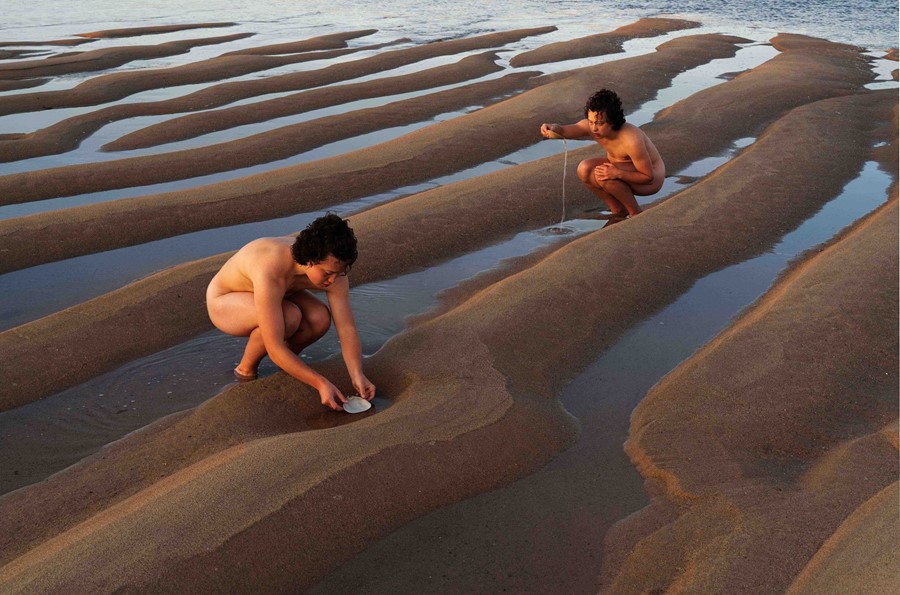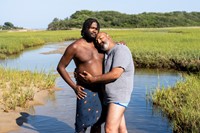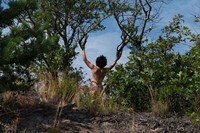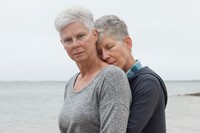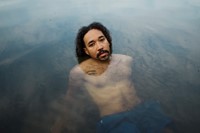Every summer since 2016, Jess T Dugan has taught a portrait photography class at a non-profit in Provincetown. Here, they present their work alongside five of their students
“It’s at the end of Cape Cod, and when you go to the land’s end, it’s as if everybody there learns to be tolerant and accepting and absorbing,” recalled Joel Meyerowitz in 2019, characterising Provincetown in a conversation for AnOther. The photographer is perhaps one of the Massachusetts town’s most famous admirers, having made much of his work there during the 70s and 80s, but he is by no means its only fan. “Something magical happens as you pass that line of cottages on the way into town – everyone’s cue to lighten up, and to open up – and then you’re just part of it for as long as you’re there,” asserts Canadian photographer and writer, Brad Hamilton today.
Widely considered a haven for LGBTQIA+ holiday makers and creatives alike, for decades Provincetown has been recognised as a sort of queer utopia, a quality that prompted Jess T Dugan’s first trip there, with a group of high school friends almost 20 years ago. “[Later] I would make regular trips throughout my undergrad experience, and since then it’s really overlapped with my personal life as this very consistent and important place to me, both as a person and an artist,” the photographer explains on a Zoom call.
Teaching a week-long portrait photography workshop at Provincetown’s Fine Arts Work Center since 2016 – a non-profit space anchored in the development of artists and writers, the FAWC additionally hosts an acclaimed artist residency programme (Paris is Burning director Jennie Livingston was a fellow in the mid-80s, as was the writer and author Jacqueline Woodson in 1991). Every summer, Dugan makes work alongside a largely-queer pool of students, of which Hamilton was one. “Because it’s portraiture, the students seek me out specifically and I tend to have a decent amount of queer students, which I always love and appreciate,” they share. Presented here, the series Love and Liberation: Portraits from Provincetown brings together Dugan’s work with five of their students’, made in 2019 through to 2023.
“I’ve learned to go there without too many plans, because it’s the kind of place where things happen organically and spontaneously,” continues the photographer. “The general queer population of Provincetown, combined with everyone’s open, creative and collaborative spirit, makes people really receptive to making work with you.” Travelling to the seaside town for two weeks every year for the past two decades (omitting 2020 and the year their daughter was born), Dugan has found a nurturing sense of community in the area. “I feel a comfort in my body and moving through the world that I don’t feel in my daily life, and a freedom to be out in the world making pictures,” says the photographer. “There’s a full acceptance of who I am, which is really singular to that place.”
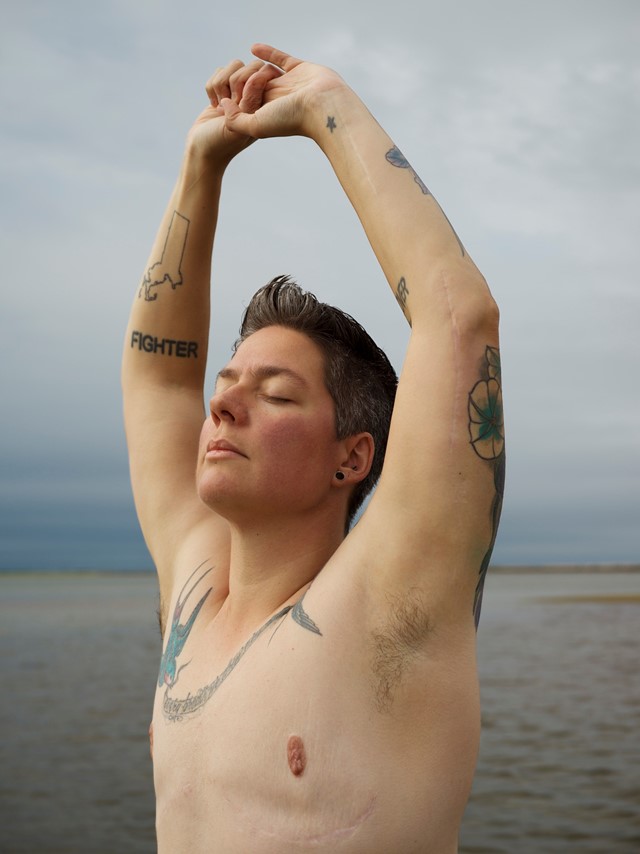
This particular sense of breathing space is echoed by their students, of all identities, while the environment and unique light that envelopes Provincetown, as well as its close proximity to water, are emblematic of the conversation around gender and sexuality. Cai Quirk, a multi-disciplinary artist focused on the intersection of gender diversity throughout history, and another student of Dugan’s, suggests that “queerness is embodied not only by the town, but by the nature as well, which is constantly changing, flowing, and growing.” For their part, Dugan recognises a shift in their own practice towards engaging with nature. “I’ve been thinking about situating queerness within an expansive natural landscape. Linking queerness and gender expansiveness with things as natural as the sky, the ocean and the sand,” they explain. “I’ve often used water as a metaphor for this duality of something that is simultaneously very stable and ever present, and also constantly in motion, and how that overlaps with identity and personhood.”
While Dugan’s relationship with Provincetown is tied up with the area’s queer disposition, that this year’s workshop coincided with the FAWC’s first formalised Queer Week only further cemented this connection. “It created this particularly magical environment where there was so much shared experience, and such a safe space on the whole campus,” says the photographer. “I was really moved by it.” Moreover, reexamining their general teaching practice, Dugan has begun to evaluate the wider narrative of the relationships formed around the workshops, with students and other queer faculty, and how it is conducive to generating support networks. “I’ve been viewing it as building this bigger ecosystem and web of queer mentorship, and I find that really, really meaningful and validating.”
